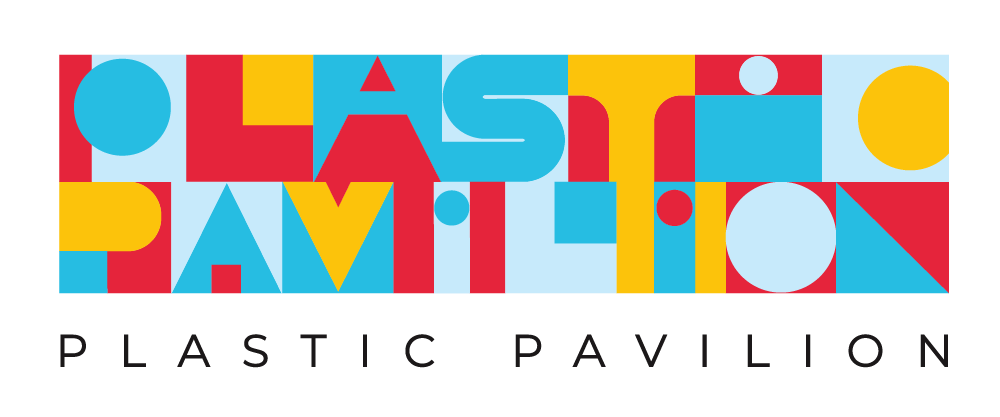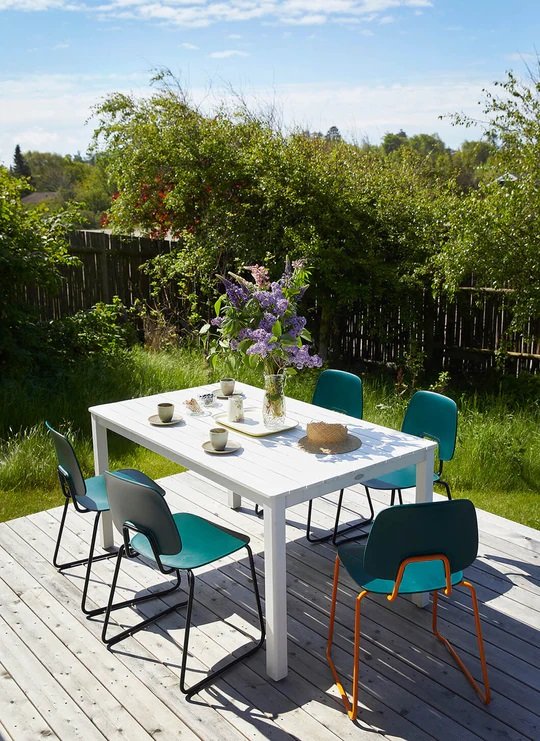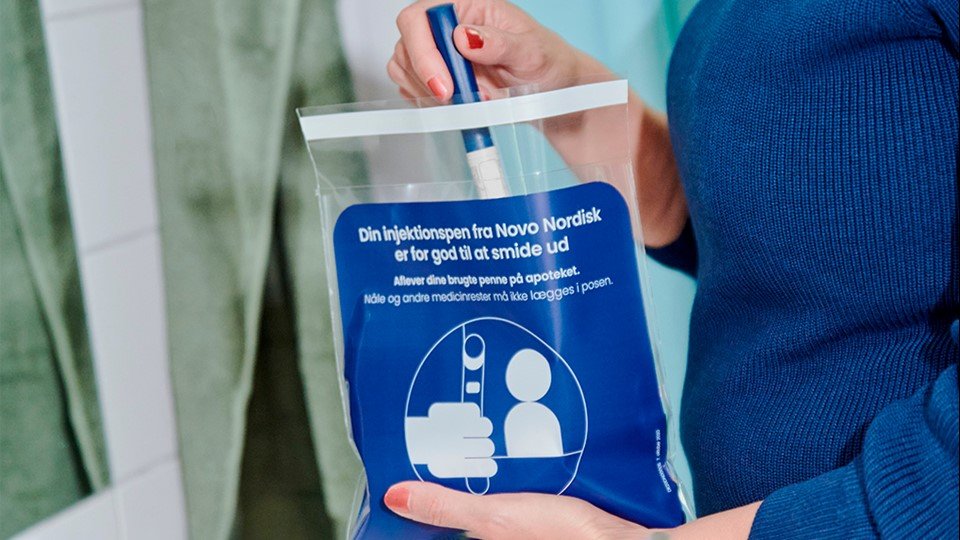Case: Ground sewer pipe
Fossil-free PVC ground sewer pipe 110-400mm with BIOVYN material
Pipelife Sverige AB
Plastic Recycling / Future Materials / Climate Adaptation
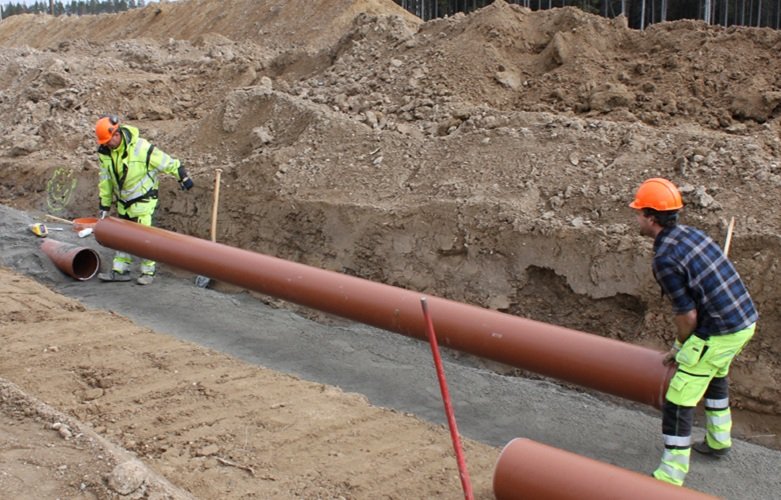
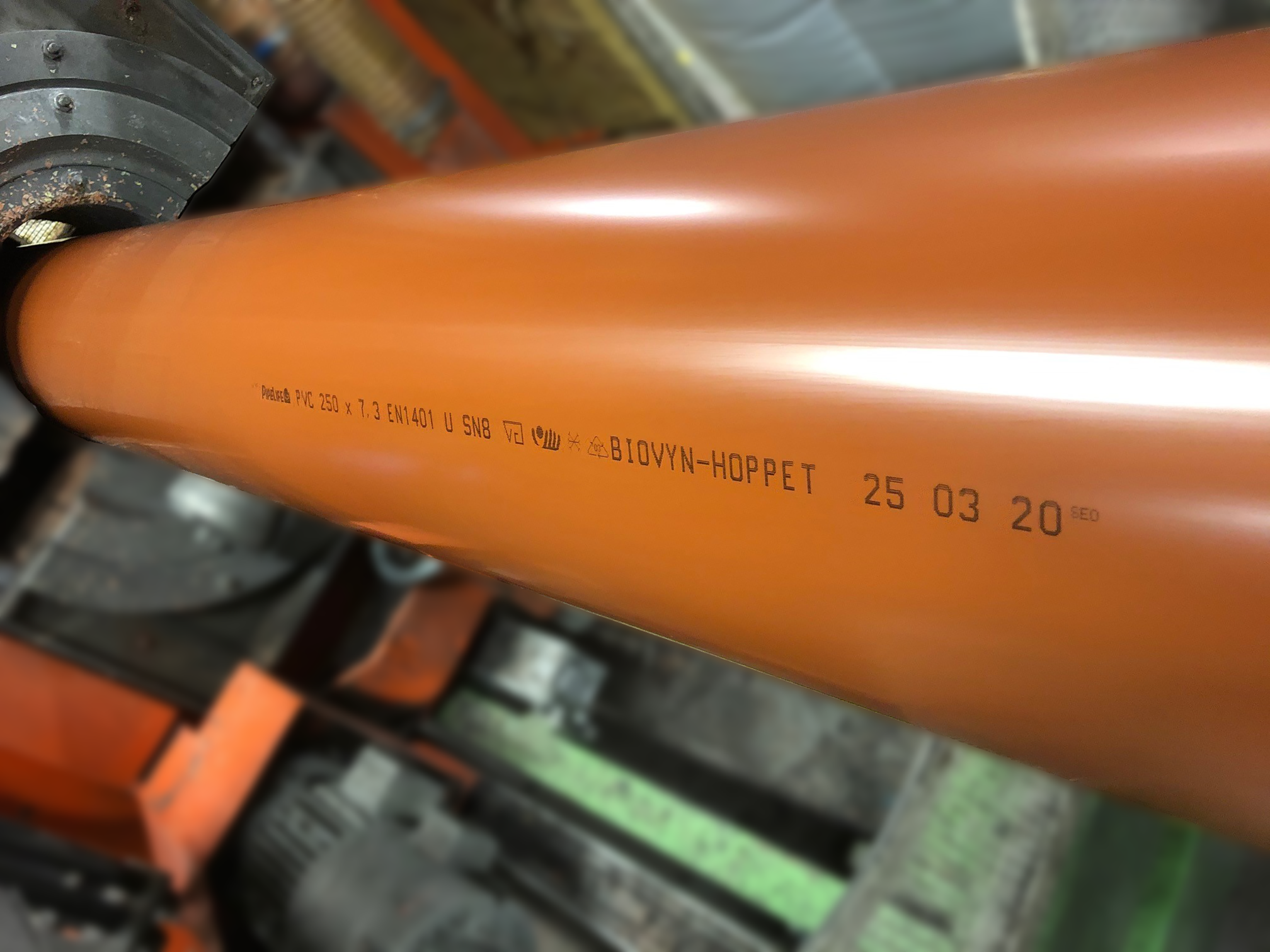
Pipelife Sweden was commissioned to supply PVC pipes for the Project Hoppet, which will be applied for soil & waste, sewage and stormwater drainage with low a footprint as possible.
A further big step has been taken towards decarbonization as Pipelife now produces PVC pipes based on fossil-free PVC. First deliveries by Pipelife Sweden went to the ambitious project “Hoppet” (Hope) in Gothenburg. With this project, the municipality of Gothenburg aims to build a fully fossil-free preschool as part of the city’s long-term climate strategy, reducing its consumption-based greenhouse gas emissions by 75%, by 2050.
Environmental performance from good to excellent
“We have managed to lower the carbon footprint for these pipe installations by no less than 76%”, specifies Ove Söderberg, Project Manager at Pipelife Sweden. To produce the pipes for “Hope”, locally produced PVC, which is based on entirely renewable raw material from the local producer INOVYN, was combined with recycled PVC.
PVC has become the "material of choice" for many pipe applications in infrastructure and buildings projects and this comes as no surprise considering their numerous benefits over other materials. PVC pipes are reliable and durable with a service life of more than 100 years, they can be used in a broad variety of domestic and industrial applications including potable water, irrigation, wastewater, cable protection, etc.
Speaking in environmental terms, they also score well when compared to other available materials. PVC pipes have a comparably small footprint when considering their entire lifecycle (from cradle to grave) and that they are recyclable. An undeniable fact is, however, that PVC pipes are produced with fossil-based raw materials. With the use of renewable PVC, their environmental performance is upgraded from good to excellent.
Carbon footprint for PVC pipe installations reduced by 76%
The Hope Project was the perfect opportunity for Pipelife to bring the environmental performance of PVC pipes to another level. Gothenburg’s municipality had launched the project as part of the City’s long-term climate strategy and aim to reduce its consumption-based greenhouse gas emissions by 75%, by the year 2050. With the ambitious goal to establish a fossil-free primary school, various sustainable processes and materials are used in its construction, and a range of sustainability experts, innovators, entrepreneurs and suppliers are brought together to deliver a truly sustainable community building.
Pipelife Sweden was commissioned to supply PVC pipes for the project, which will be applied for soil & waste, sewage and stormwater drainage with low a footprint as possible. “We have managed to lower the carbon footprint for these pipe installations by no less than 76%”, specifies Ove Söderberg, Project Manager at Pipelife Sweden. To produce the pipes for “Hope”, locally produced PVC, which is based on entirely renewable raw material from the local producer INEOS Inovyn, was combined with recycled PVC.
INEOS Inovyn’s fossil-free PVC called BIOVYN is a specialist grade of PVC made from renewable feedstock derived from wood-based residue from the forestry industry. It delivers greenhouse gas savings of more than 90% compared to conventionally produced PVC as certified by The Roundtable on Sustainable Biomaterials (RSB).
“We are proud to be part of the Hope Project and to help decarbonize not only this building in Gothenburg but in future hopefully many more communities with our fossil-free PVC pipes.”, says Söderberg.
